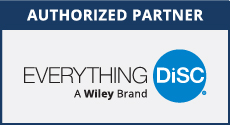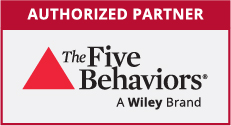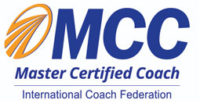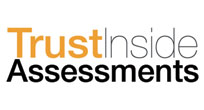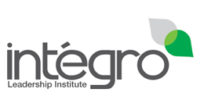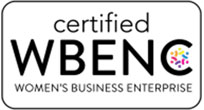People-Whispering Tip:
“The unexamined life is not worth living.” ~ Socrates
“All of humanity’s problems stem from man’s inability to sit quietly in a room alone.” ~ Blaise Pascal
“Look within!…The secret is inside you.” ~ William Shakespeare
“Seeing within changes one’s outer vision.” ~ Joseph Chilton Pearce
Becoming a Self-Reflective Leader
During this holiday season, it is easy to get caught up in over-activity and not take the time to truly step back and remember the true spirit of the season. While the holidays are a seemingly valid excuse, it is my observation that in our over-stimulated world today, many of us don’t take the time for self-reflection throughout the year.
What is Self-Reflection?
What do I mean by self-reflection? Quite simply, I mean taking the time on a regular, preferably daily, basis to step back and filter out the noise and distractions. It includes not only looking at your behaviors and actions but also at your thinking and how you might be getting in your own way.
It may involve asking yourself tough questions and examining your motivations. That said, it is not about self-criticism. Rather it is about knowing yourself fully. This is the first step in emotional intelligence which is self-awareness.
Self-refection involves examining and defining your values as a leader and as a human being. Ask yourself, “What do I truly believe? Am I willing to state my values and what is truly important to me? Am I living and behaving in alignment with what I say I value?”
Why is Self-Reflection So Important?
According to Harry Kraemer, former Chairman and CEO of Baxter International and currently Professor at Northwestern University’s Kellogg School of Management, self-reflection is the key to identifying what you stand for, what your values are, and what matters most to you. The more self-reflective you are, the easier it is to make wise choices in alignment with your values and to be aware of the full impact of your decisions.
Whether you are a leader of a team, department, or Fortune 500 company, or are simply trying to manage yourself, your priorities, and your time more effectively, self-reflection helps you make clear choices that provide the most beneficial outcomes for all concerned. Likewise, it is easier to navigate a complicated existence and multiple roles if one practices self-reflection consistently.
In my work as an Executive Coach and Leadership Development Professional and Facilitator, I often see those who aspire to become better leaders look outside themselves first. They try not to be like the bad boss they suffered under or they aspire to be like someone written up in the press or someone who is held up as a leadership role model.
The truth is, you are not Jack Welch, Abraham Lincoln, Steve Jobs, or whoever the leader of the day is supposed to be. Certainly we can all learn from the examples of others but true leadership has to come from your core, your views, your life experiences, your personal and professional paths, and your unique brand of wisdom. I have a quote from Herman Melville near my desk in my office which says, “Far better to fail at being yourself than to succeed in imitating another.”
In other words, the more you self-reflect, the better you will know yourself: your strengths, weaknesses, abilities, areas to be developed, and more. With this clarity, you will be better able to connect and communicate and relate to others which is the heart of leadership effectiveness.
How to Practice Self-Reflection for Leadership Effectiveness:
I have written articles about the importance of self-knowledge, emotional intelligence, and knowing yourself in many places over the years. Some of the best practices to be sure you are as self-aware as possible include the following four steps:
1) Ask for Feedback Regularly
You have heard the expression “perception is reality.” Seek to understand how others perceive you by sincerely asking for feedback on a regular basis. A formal 360 degree feedback process such as the 363 for Leaders assessment can be a helpful tool to begin an ongoing dialogue.
Remember that feedback is about information and not evaluation and know that we all have strengths as well as areas for growth and development. I work with 360 feedback reports extensively with my clients and encourage leaders to own their strengths and to work on their interpersonal flexibility and openness to learning and collaborating with others in their areas of limitation.
2) Reflect on Performance
In addition to soliciting regular feedback from others, it is important to develop the habit of self-assessing. Whenever, you perform a task or interact with another, you can ask yourself, “What did I do well?” and “What can I do differently or even better next time?”
Notice this is not an exercise in self-criticism or an opportunity to beat yourself up in any way. Rather it is developing the habit of continuous improvement. Understand what you could have done better in order to learn from your mistakes and also be sure to acknowledge and celebrate success by taking pride in what you did well so you can do more of that as well.
3) Know Your Strengths and Weaknesses
The reason you want to identify your key strengths and weaknesses is so that you can leverage your strengths and gifts, not just “work on” your weaknesses.
The late management guru Peter Drucker in his classic “Managing Oneself” article stated, “One should waste as little effort as possible in improving areas of low competence. It takes far more energy and work to improve from incompetence to mediocrity than it takes to improve from first-rate importance to excellence.” It is important to distinguish that Drucker was talking about functional competencies and not “soft skills” here which can always be improved upon.
4) Know Your Joys, Your Passions, and What Makes Your Heart Sing
Be aware of and tune into your emotions as you work and relate to others in the workplace. We all have elements in our work that are tedious or unpleasant. However, if the bulk of your work does not satisfy you, go back and do more self-reflection about what energizes and excites you. You may need to revisit your values and why you do what you do and for whom. The people that excel and enjoy their lives spend their days doing what they believe is meaningful and fun. Most of us spend the majority of our days making a living. Make sure you are also making a life in the process.
To learn more and for assistance in cultivating healthy, engaged, emotionally intelligent leaders, teams, and Responsibility-Based Cultures, please call us at 404-327-6330 or email me at Laura@lauraadavis.com.
DiSC® Assessment Application(s)
1) Register for the Webinar “Building and Fostering a Cohesive Team: Your Ultimate Competitive Advantage” Wednesday Dec. 17, 2014 at Noon to 1 PM Eastern
Best-selling author Patrick Lencioni has joined forces with Wiley (formerly Inscape Publishing) to offer this excellent process for building effective teams.
Teamwork is the lifeblood of an effective organization. Unlocking the code to getting groups of people to work together in high-performing and joyous ways is the key to a profitable and sustainable corporate culture.
The process consists of an individual and team assessment based upon Lencioni’s time-tested, proven model. The accompanying Facilitator Kit walks you through his research-based model to uncover where your team’s strengths and areas for growth and development lie.
To take advantage of this well-designed, time-tested method to unleash your team’s potential, call our office at 404-327-6330 or email Laura@lauraadavis.com.
2) The Work of Leaders Training and Profile Report
The Work of Leaders Made Simple: Vision, Alignment, and Execution.
Everything DiSC Work of Leaders® is classroom training that uses online pre-work, engaging facilitation with contemporary video, and online follow-up to create a personalized learning experience. Based on best practices, Work of Leaders connects unique leadership styles to real-world demands, generating powerful conversations that provide a clear path for action.
Everything DiSC Work of Leaders approaches leadership as a one-to-many relationship, as opposed to the one-to-one relationship explored in Everything DiSC® Management. It focuses on tangible steps directed at leading a group or organization toward desired outcomes.
Using the framework of Vision, Alignment, and Execution, Work of Leaders encourages leaders to understand their own leadership styles and how they impact their effectiveness. Rich, compelling narrative adds depth to the data and strong visuals support the learning process by illustrating key messages.
Research-based
- Result of four-year research and development effort
- Analyzed and distilled the work of prominent leadership researchers
- Input from more than 300 subject-matter experts at over 150 organizations
- Identified leadership best practices
Please see the Sample Report to see how insight into your team’s culture might help your team to become more effective in the future.
3) The Coaching Clinic Workshop: Coaching Skills for Leaders and Managers
The Coaching Clinic is a two-day leadership development program designed to train managers, executive, leaders, and supervisors to use coaching skills in their work relationships. There is also a half-day version available for executives.
Developed by Corporate Coach U, this program allows participants to:
- Discover coaching as a powerful leadership and management development model.
- Experience and practice “state of the art” coaching techniques.
- Understand the structure and process of integrating a “Coach Approach” as a leader.
- Apply the learning within the workplace right away.
Click here for more information.
4) The 8 Dimensions of Leadership: DiSC Strategies for Becoming a Better Leader by Jeffrey Sugarman, Mark Scullard, and Emma Wilhelm
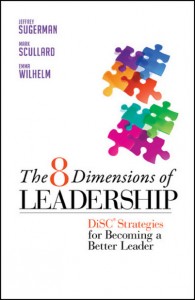 We all approach leadership from a unique starting point – a combination of our own psychological make-up, intelligence, training, and experience. When anyone strives to grow as a leader, they need to stretch their energy in new directions.
We all approach leadership from a unique starting point – a combination of our own psychological make-up, intelligence, training, and experience. When anyone strives to grow as a leader, they need to stretch their energy in new directions.
For example, a person may be promoted into a leadership role because of their outgoing nature and positive attitude. While this visionary style may prove inspiring, they might also need to develop their analytical side in order to be more successful at running a business.
The 8 Dimensions of Leadership Model described in the book is based on the DiSC model, a systematic way to understand the forces beneath the surface that drive our individual behavior.
In the last issue of this ezine, I promised to cover some of the lessons we can all learn from each of the 8 leadership styles: Pioneering, Energizing, Affirming, Inclusive, Humble, Deliberate, Resolute, and Commanding.
Let’s look at the strengths of the Affirming Style of Leadership and the lessons we can learn from them.
First, let’s review the strengths of the Affirming or iS Leader. Affirming leaders tend to be friendly, approachable, and positive in their approach to leadership. They make a point of acknowledging other peoples’ contributions which often breeds loyalty to them from not only their direct reports but from their peers and colleagues as well.
The Strengths of Affirming Leaders are that they:
- Tend to be friendly and approachable.
- Are often generous in their praise.
- Are able to consider the needs of different groups of people.
- Are less concerned with their own ego needs.
- Tend to be optimistic.
- Are good at making people feel that they belong.
- Are able to see things from other perspectives.
- Often come across as down-to-earth.
What can those of us who are not so naturally Affirming learn from those with this predominant, natural leadership style?
The three lessons we can learn are:
- Crossing the finish line won’t do much good if your team is in shreds when it gets there.
- People come to work for more than just a paycheck.
- People aren’t always going to act the way you think they should.
The ultimate goal of understanding your leadership style is to broaden your repertoire beyond your comfort zone/default setting so that you can make the best choice of leadership style and behavior based upon the needs of any given situation.
There is a four step process for using this information to improve your leadership effectiveness as follows:
- Discover Your Primary Leadership Dimension.
- Learn about the Psychological Drivers, Motivations, and “Blind Spots” Typical of Leaders with Your Style.
- Reflect on What Really Matters Most in your Leadership Development Right Now.
- Learn Leadership Lessons in the Areas in Which You’d Like to Grow and Expand.
Stay tuned for future webinars and trainings which will delve into The 8 Dimensions of Leadership Model so you will know how to apply it for your own, and your team’s, leadership development needs.
For more on how to increase your organization’s effectiveness using the appropriate Everything DiSC profile and/or training materials for your unique needs, please call us at 404-327-6330 or email me at Laura@lauraadavis.com.
Transformational Coaching Tip:
Becoming More Affirming
Whether you are naturally an affirming style leader or not, here are some tips to help you build upon the strengths of this style.
Tips for Becoming More Affirming:
- Focus specifically on being friendly.
- Make an effort to initiate more lighthearted conversations.
- Work to assume positive intent when dealing with other people.
- Learn to engage people one-on-one and in small group settings.
- Discover why various people come to work each day.
- Take the time to validate and affirm people for doing good work.
- Reflect a bit on what you expect from other leaders. Are your expectations realistic enough?
- Strive to understand the other person by asking questions and by keeping an open mind as to their world-view and motivations.
- Accept your own and other peoples’ limitations. We are all only human.
For assistance in applying any of these best practices into your workplace for more powerful, effective results, feel free to call us at 404-327-6330 or email Laura at Laura@lauraadavis.com.


